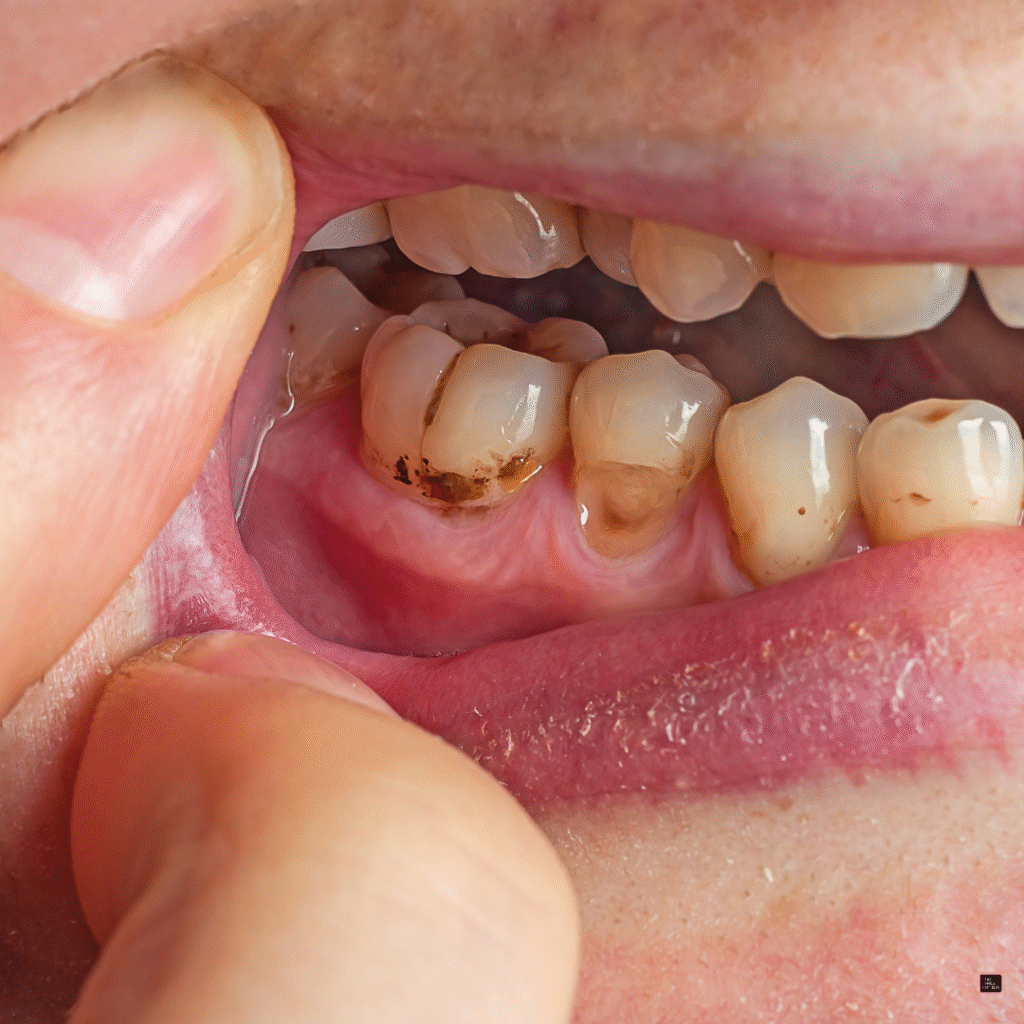07 May 2025
How Long Does Decay Take To Spread?
Along with gum disease, dental decay is the reason why teeth need to be extracted. But it can and should be reversed as early as possible after if forms. But how long does decay take to spread, and how do you stop it from spreading in the first place? We’ll be answering both of these questions in this piece.
How long does decay take to spread?
It can take anything from 6 months to 5 years for a cavity to form, and factors which affect this timescale include:
- Genetics – some people have thinner enamel than others and are therefore more at risk from fast-spreading decay
- How often you consume sugar – it’s the frequency at which you consume sugar that affects cavities far more than the amount of sugar you eat. Even a very small amount of sugar multiple times during the day will bring on plaque attacks that cause the deterioration of tooth enamel.
- How much water you drink – sipping on water after meals is instrumental for rinsing away the harmful acids created by eating sugar in your mouth.

Tooth decay stages
Tooth decay (like gum disease) is a progressive condition past a certain stage. Here are the stages, from mild to severe.
Demineralisation
The first stage of decay is on the protective outside armour coating your teeth – your enamel. demineralisation is characterised as white spots on your teeth, which indicates the loss of essential minerals.
There are certain foods you can eat that are high in minerals, including turkey and cheese, which are both known to remineralise teeth and lower the pH in your mouth. At this stage, it’s also possible to remineralise teeth by using fluoride toothpaste, drinking plenty of water, and lowering the amount of times you consume sugar each day.
Enamel decay
When decay isn’t stopped at the demineralisation stage, dark spots can begin to form on your teeth, followed by small holes in your teeth. These are cavities, which will need treatment with a filling.
Dentine decay
Dentine is the calcified tissue underneath your enamel. It is far weaker than enamel, so once decay or a cavity has affected dentine, intense sensitivity and pain can set in, and the condition of your tooth can deteriorate very quickly. If you’ve noticed sensitivity to hot and cold foods that feels intense and doesn’t subside quickly, it’s worth making an appointment to make sure the decay doesn’t reach the next stage – pulp damage.
Pulp damage
The pulp is the part of the tooth that contains blood vessels that provides essential nourishment to teeth. Infected pulp occurs once a cavity has pierced through your dentin. At this stage, it’s very likely that a root canal will be needed to save the tooth, and in some cases the tooth may need to be extracted.
Abscess
Once the decay has heavily set into the pulp, an abscess can form. Abscesses are pockets of pus located at the base of the affected tooth. They can cause severe pain that can radiate into the jaw, and without treatment they can even be life-threatening as they spread to the bone, surrounding teeth, and into the bloodstream.
How to stop decay from spreading
Preventing decay from spreading involves a few steps:
- Keep an eye on your teeth: it can be really easy to miss things that are going on in your mouth. If you can, get into the habit of using your phone light to have a look at your teeth on a weekly basis. This will help you identify any white spots and dark patches that indicate decay, but which can get missed.
- See your dentist for routine appointments: despite the above advice, you should see your dentist for routine check-ups, even if you can’t see any obvious evidence of decay. Decay can be very subtle and only picked up by a dentist using high-spec dental loupes (like we do here at The Smile Studios). A missed routine appointment could move you one stage further to decay and place your tooth beyond the point of return. It’s really worth coming along to routine appointments to avoid that risk, and the painful symptoms that go with it.
- Use fluoride toothpaste: fluoride toothpaste is clinically proven to reduce cavities. If you aren’t already using one daily, this is one of the easiest things you can do to up the protection for your tooth enamel.
- Sip on water after eating: water is hugely beneficial for cleansing your mouth, getting rid of the sugars left behind after you eat. Plus, water in the UK contains fluoride, which boosts your tooth’s protective armour (your enamel).
Contact a dentist in Palmer’s Green to save your tooth
Our dentists use the most advanced magnification and diagnostic equipment to identify the earliest stages of tooth decay. Our investigations are always highly detailed, so you can feel confidence that there aren’t any anomalies that get missed during your routine visits.
We encourage you to come and see us if something doesn’t look or feel right, and to observe the golden rule of prevention – to never miss your routine check-ups. Without these, your dentist can’t act to protect your tooth from more serious deterioration.
Back to Blog